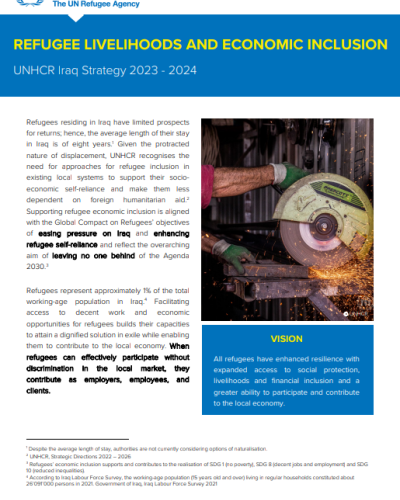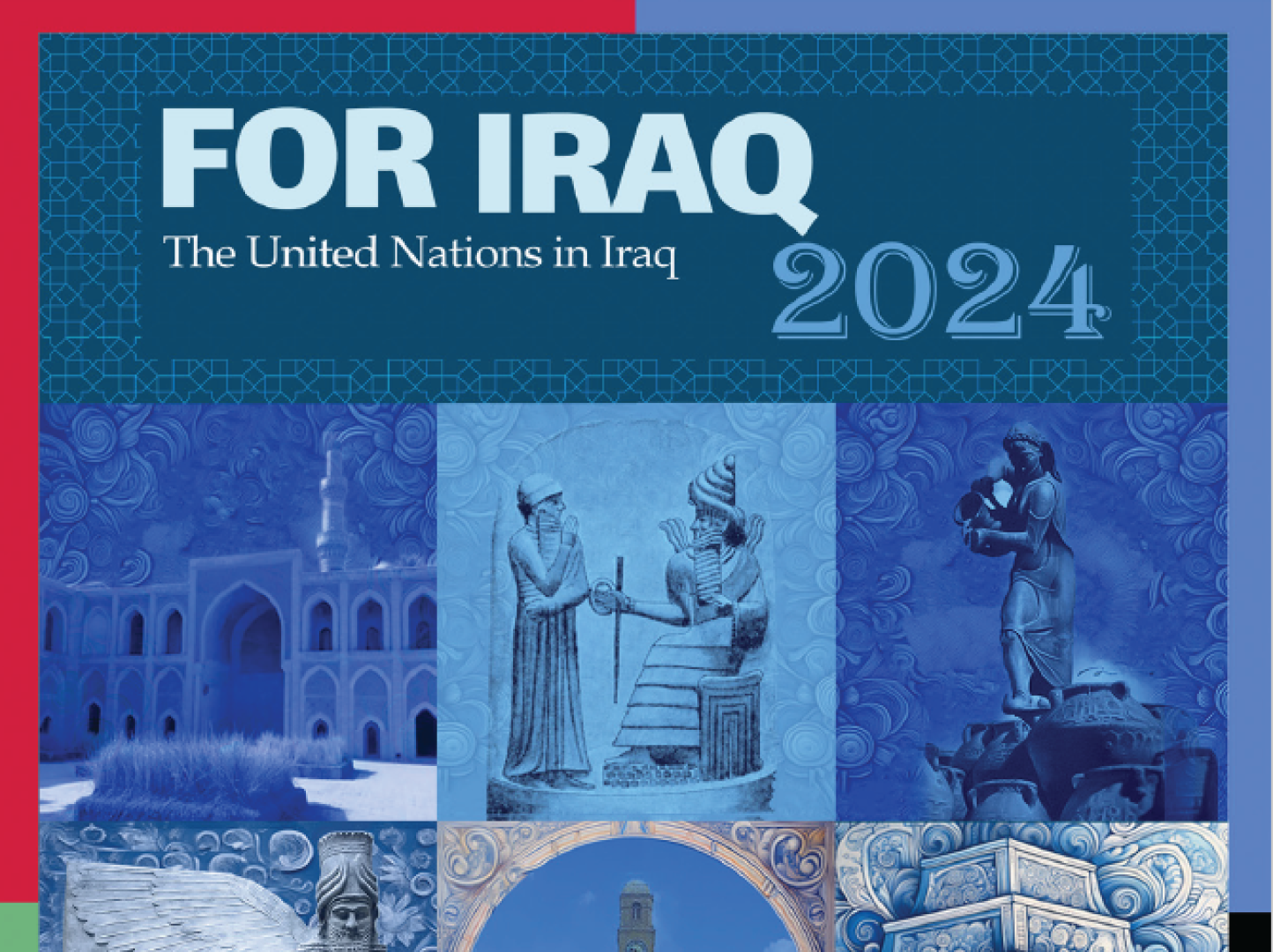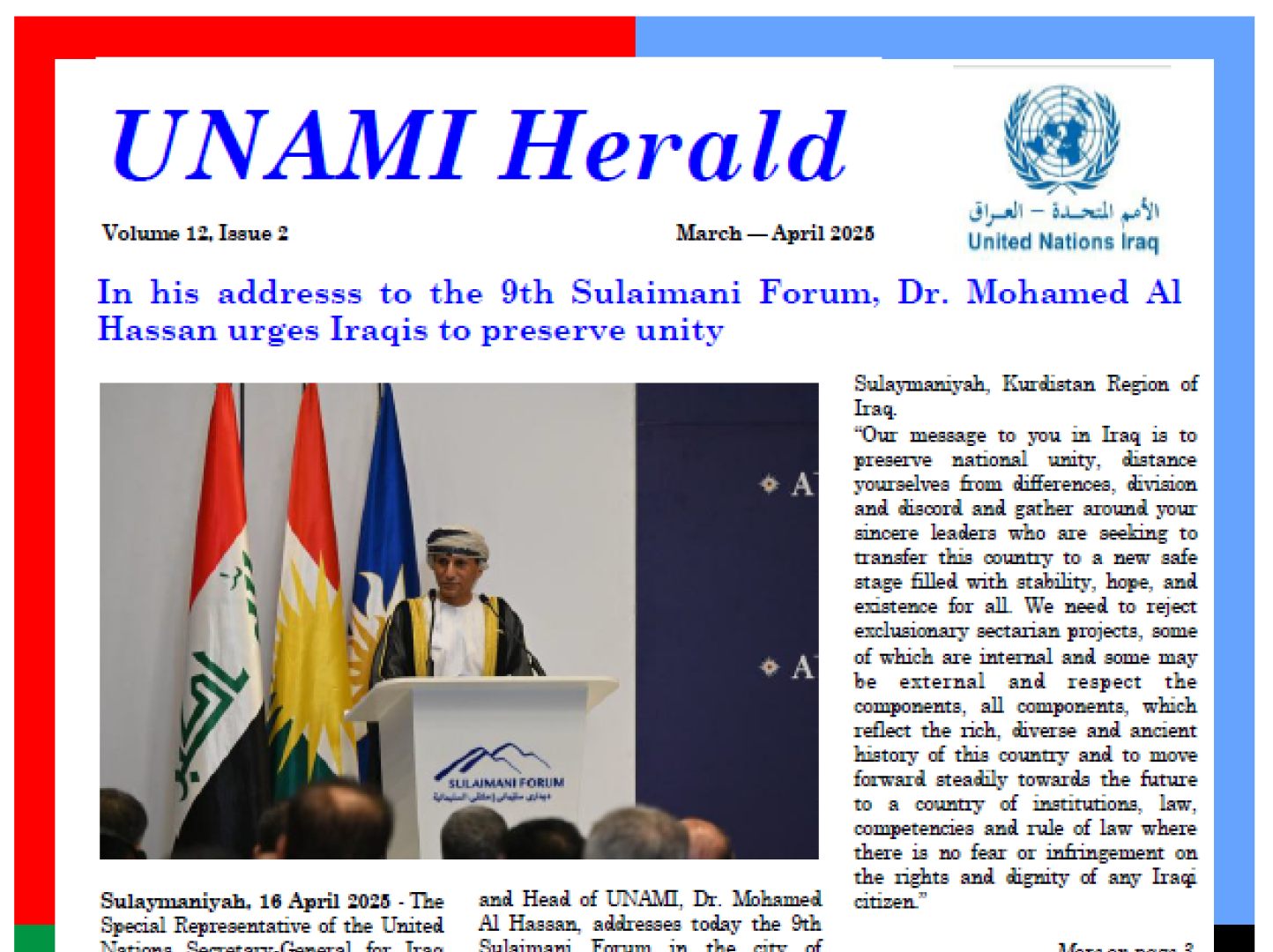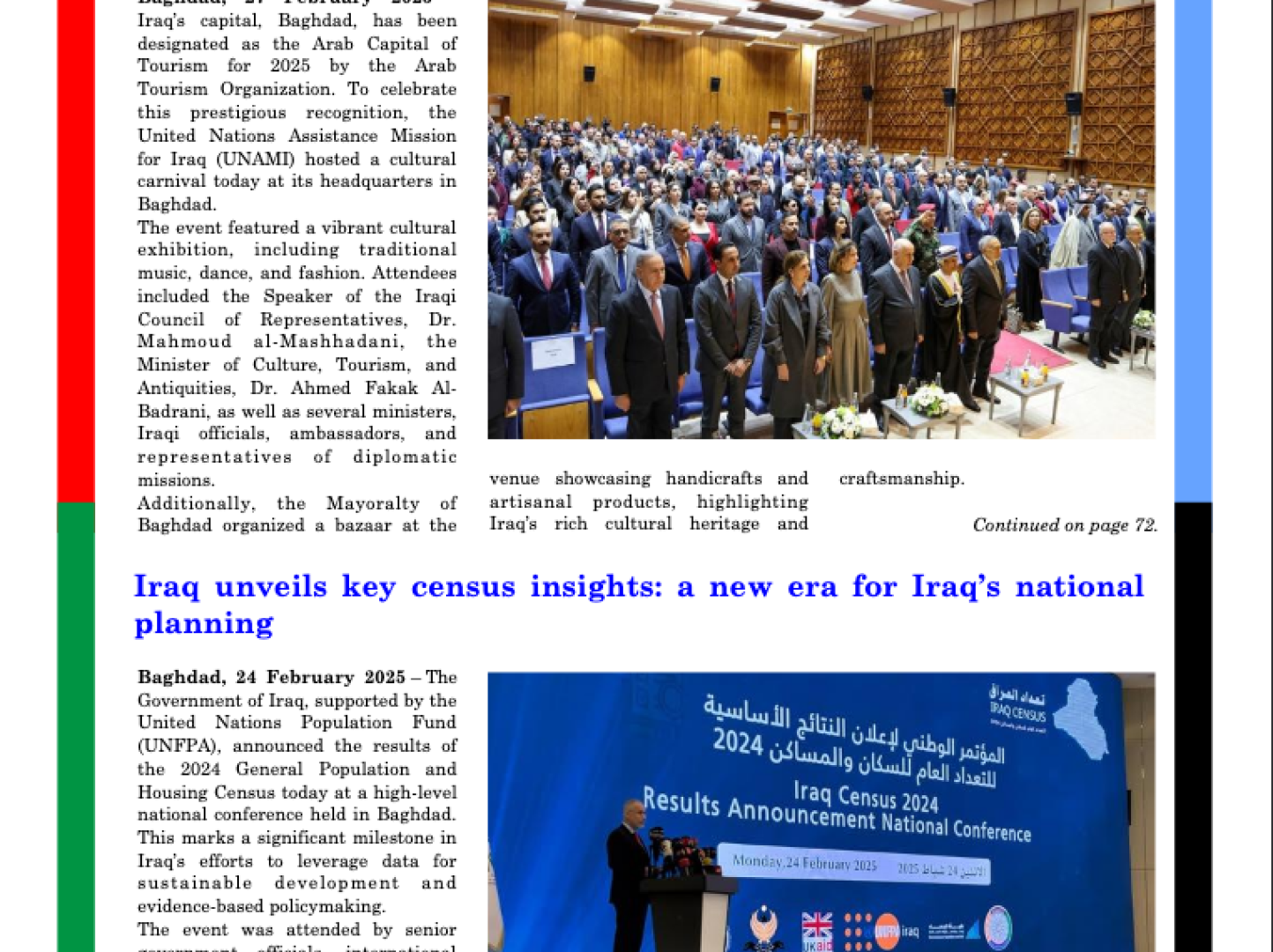UNHCR Iraq: Refugee Livelihoods and Economic Inclusion Strategy 2023 - 2024 (August 2023)

Refugees residing in Iraq have limited prospects for returns; hence, the average length of their stay in Iraq is of eight years. Given the protracted nature of displacement, UNHCR recognises the need for approaches for refugee inclusion in existing local systems to support their socioeconomic self-reliance and make them less dependent on foreign humanitarian aid.
Supporting refugee economic inclusion is aligned with the Global Compact on Refugees’ objectives of easing pressure on Iraq and enhancing refugee self-reliance and reflect the overarching aim of leaving no one behind of the Agenda 2030. Refugees represent approximately 1% of the total working-age population in Iraq.4 Facilitating access to decent work and economic opportunities for refugees builds their capacities to attain a dignified solution in exile while enabling them to contribute to the local economy. When refugees can effectively participate without discrimination in the local market, they contribute as employers, employees, and clients.






